Learning how to feel the lead down is one of carp fishing’s biggest edges. It tells you exactly what kind of lakebed you’re fishing over—gravel, silt, or weed—and helps reduce tangles and disturbance. Master this technique and you’ll fish more accurately, more confidently, and ultimately catch more carp. Here's how you do...

How To Feel The Lead Down
Master this essential skill and you’ll know if you’re fishing on gravel, in silkweed or soft silt
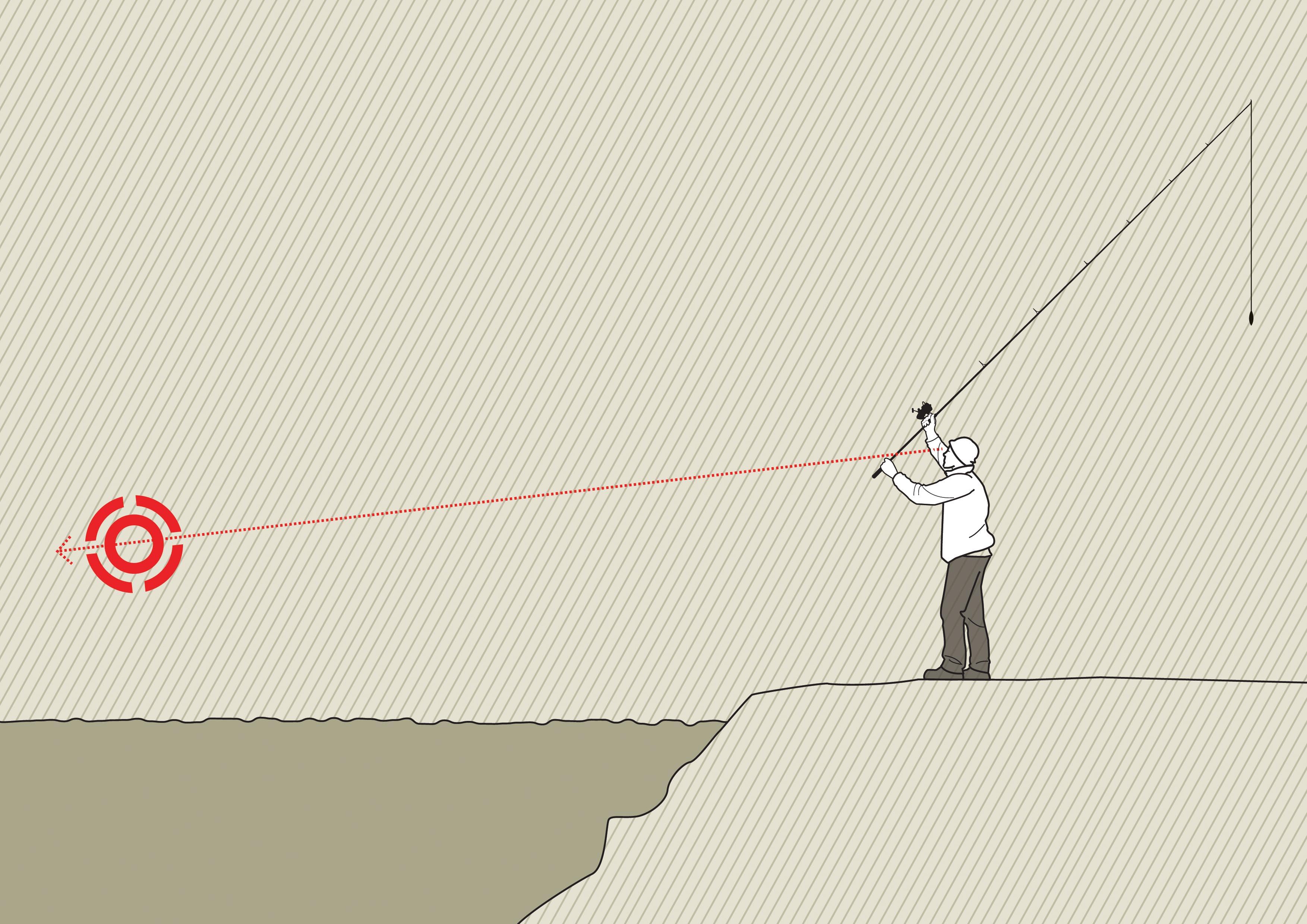
1. Line up your cast as normal, aiming for your chosen spot. Ensure the lead hangs at half the rod’s length (around the spigot/join), as this helps compress the rod during the cast. Release the lead between 1 and 2 o’clock on a clock face.
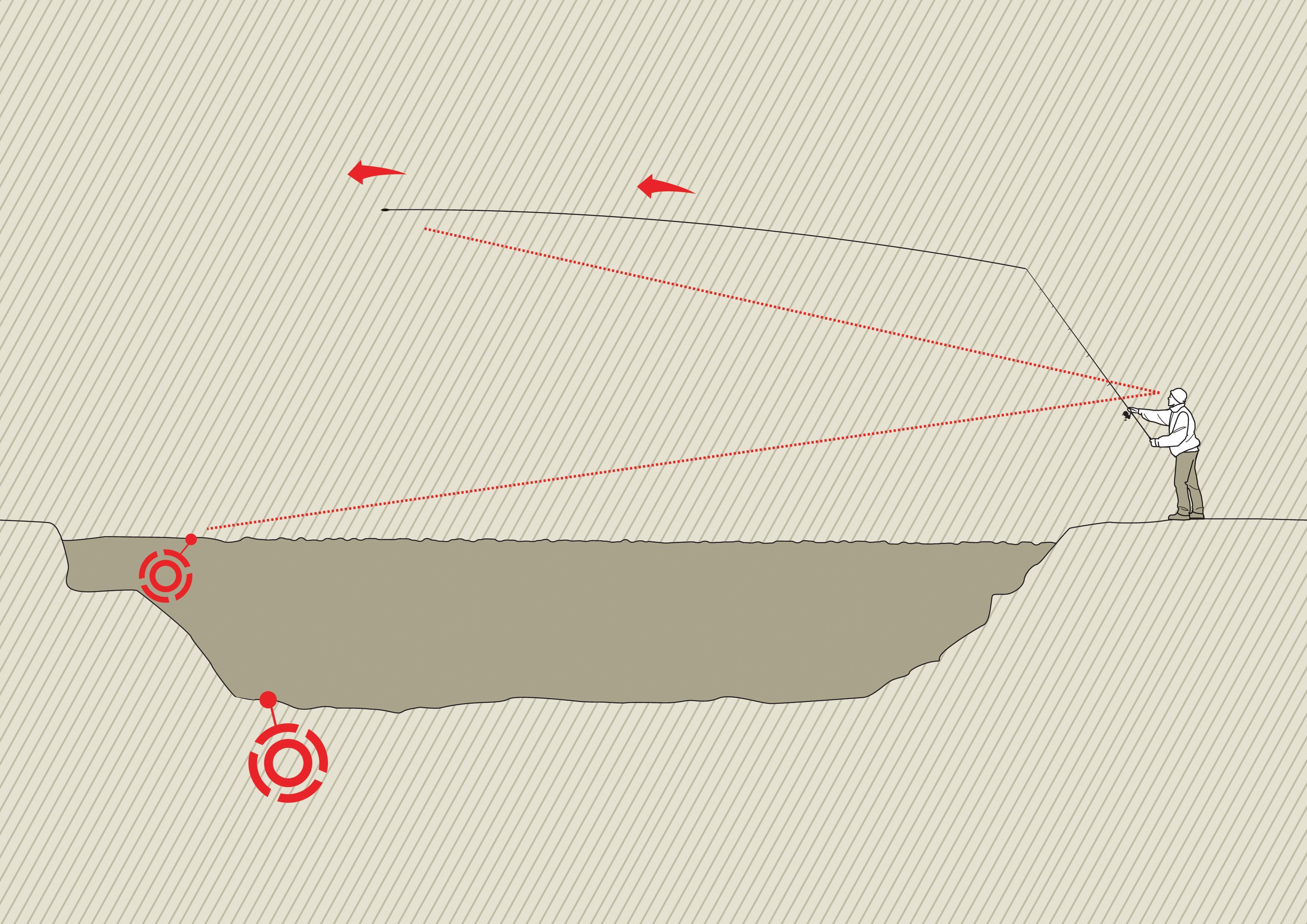
2. As the lead flies through the air, keep your rod angled between 1 and 2 o’clock. This helps the line flow smoothly off the spool and through the rod rings, and makes it easier to feel the lead down. Watch your rig throughout its flight to check it’s on target and to judge the right moment to start feathering the line.
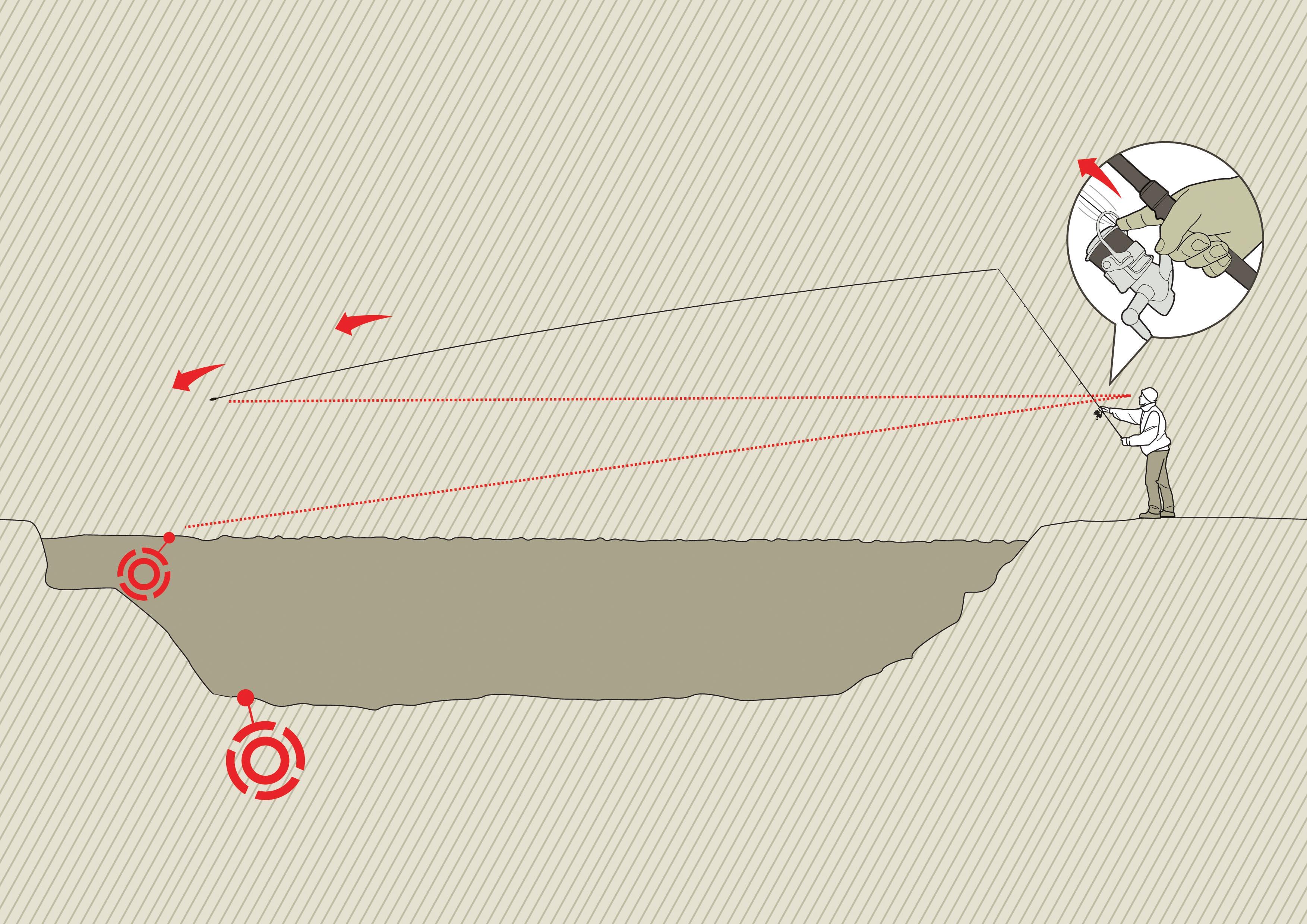
3. As the rig nears the spot, use your finger and push it again the side of the spool to gradually slow the line. This reduces the rig’s speed and prevents it from crashing into the lake. Keep your rod tip high throughout.
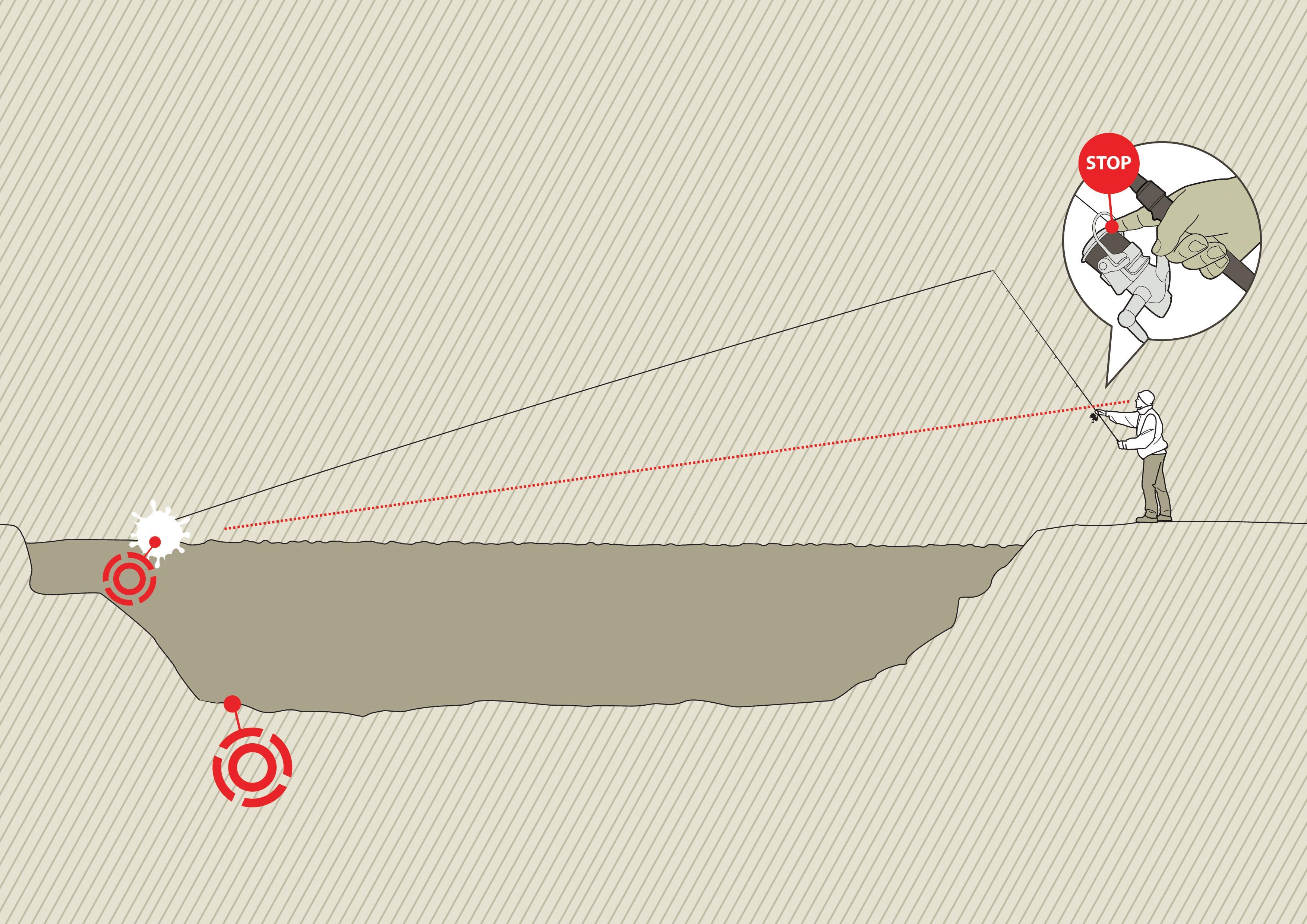
4. Just before the rig hits the water—around two feet from the surface—trap the line completely with your finger to stop it coming off the spool. This halts the lead over the spot and lets it drop in with minimal disturbance. Feathering and trapping the line also helps kick the hooklink away from the leader, reducing tangles.
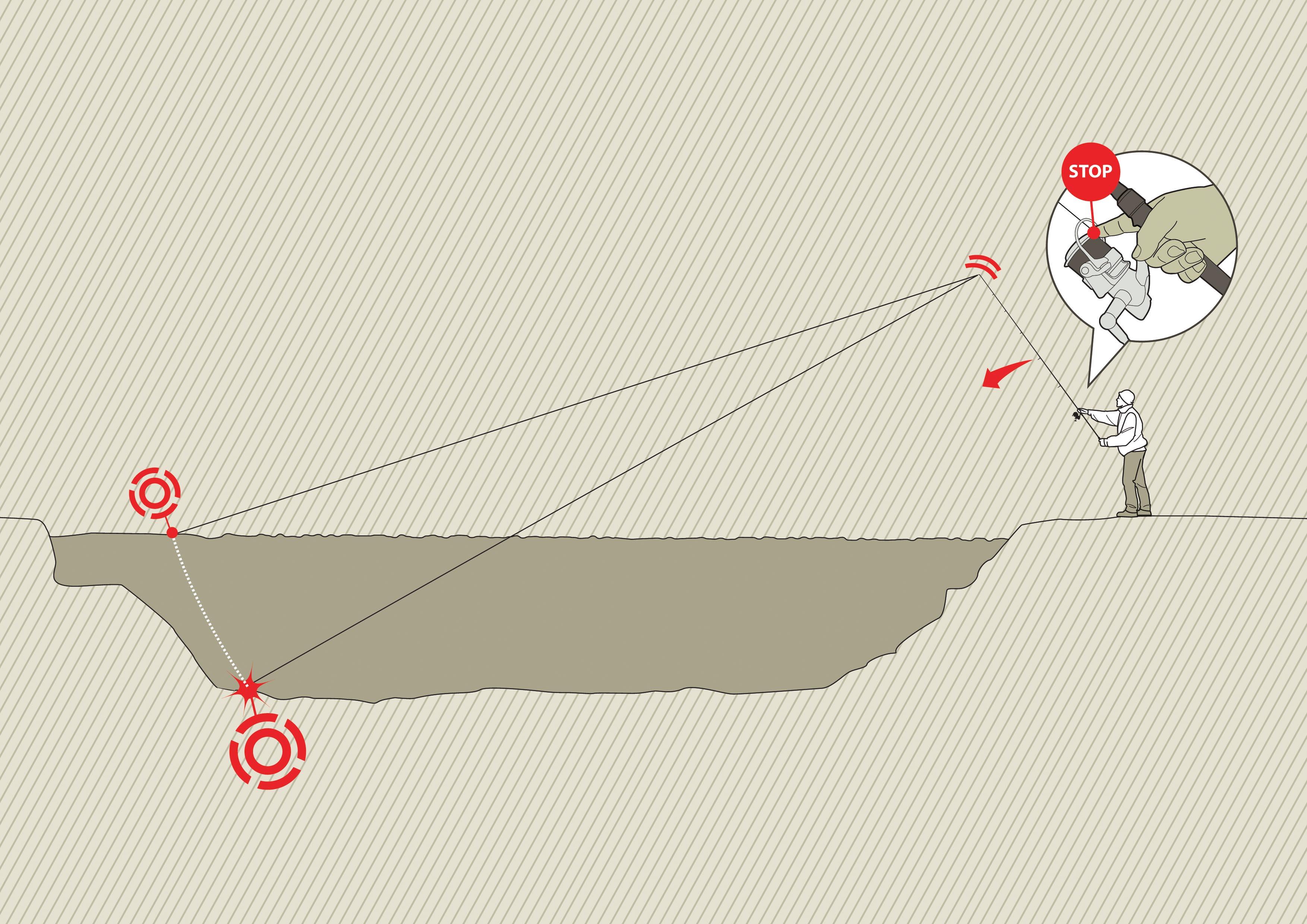
5. With the line trapped and the lead entering the water, keep your rod tip high and the line tight. As the lead drops, slowly lower the rod tip in sync, maintaining contact. This will reduce how much the lead swings back towards you. When the lead hits bottom, you’ll feel it through the tip. A firm ‘donk’ means a hard lakebed like gravel or sand; a softer feel indicates silt or light weed.
